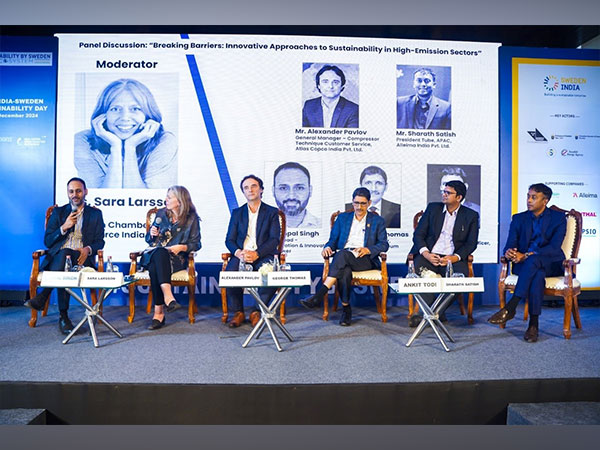India-Sweden Partnership: Pioneering a Sustainable Future
India and Sweden collaborate to tackle climate change through sustainable practices and technology transfer. With Swedish companies playing pivotal roles in India's green transition, the partnership focuses on renewable energy, electric vehicles, and circular economy innovations, fostering a sustainable global future.

- Country:
- India
As global climate change consequences intensify, the urgency for sustainable development is reaching critical levels. Nations around the world are acknowledging the necessity of transitioning to eco-friendly economies, reducing carbon footprints, and adopting sustainable practices to protect future generations.
India and Sweden exemplify this trend, partnering to leverage each other's strengths in addressing pressing environmental challenges. Sweden's expertise in advanced technologies and sustainability supports India's shift towards a greener economy through governmental and corporate collaboration. Christian Kamill, Deputy Head of Mission at the Embassy of Sweden, underscores the robust political dialogue enhanced by the presence of 280 Swedish companies in India.
Sweden's proactive policies, as mentioned by Sofia Hogman, Trade Commissioner of Sweden to India, have been influential. Its early introduction of a carbon tax in 1991 has spurred sustainability innovations. The Extended Producer Responsibility regulation from the 1990s, which sets benchmarks in managing packaging waste, reflects Sweden's commitment to circular economy practices.
The partnership also extends to electric vehicle infrastructure development. Companies such as Volvo and Hitachi Energy are key players in India's charging infrastructure and electric buses development, supported by collaborations with institutions like IIT Bombay. The joint focus on policy frameworks ensures a holistic approach to advancing e-mobility in India.
Technology transfer in high-emission sectors, like steel and cement, remains a significant focus of the India-Sweden collaboration. Joint exercises initiated by the countries' prime ministers target industrial transition, with expectations of presenting results at COP conferences. Swedish firms are advancing renewable energy access in rural India with projects like solar pumps by Spoudy and microgrid plants by FOE Biogas.
Swedish companies are also prominent in promoting circular economy practices and waste management, setting industry standards in solid waste and wastewater management. Their efforts in pushing efficient practices help reduce waste and energy consumption, aligning with global sustainability goals.
The India-Sweden collaboration shines as a model of international cooperation in tackling environmental challenges. The partnership, fueled by a mutual vision of a resilient and sustainable future, sets a global precedent in sustainable innovation efforts.
(With inputs from agencies.)
ALSO READ
IFC and Central Puerto Partner on $600M Renewable Energy Transmission Line for Argentina’s Mining Sector
Narmadapuram: New Hub for Renewable Energy Investment
Madhya Pradesh's Narmadapuram Sparkles with New Renewable Energy Units
Vijay Murugesh Nirani: Steering India's Renewable Energy Revolution
NTPC Renewable Energy Secures Major Solar Project from SECI










